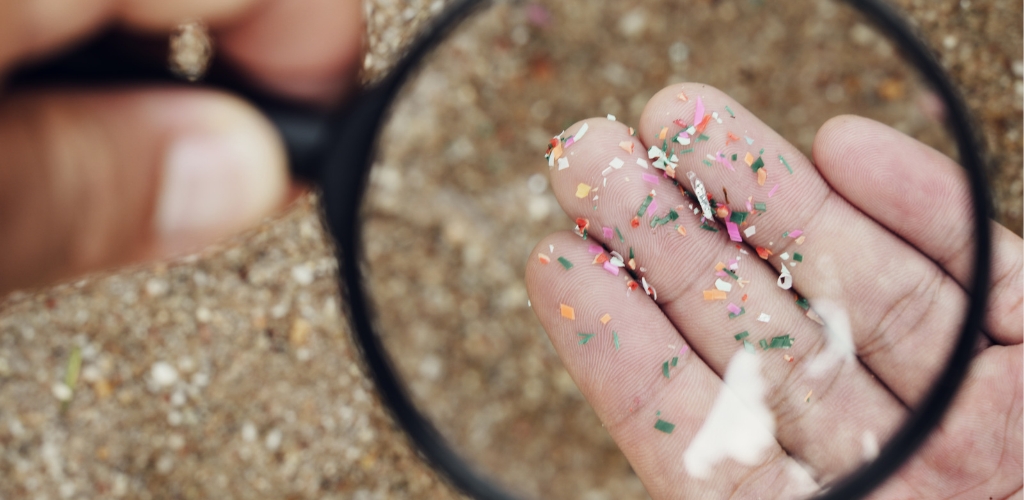The latest news on the presence of microplastics and nanoplastics in bottled water has raised concerns about potential health impacts, including the risk of cancer. A recent study revealed that bottled water can contain up to hundreds of thousands of nanoplastics per litre, a number that far exceeds previous estimates. These findings have prompted discussions about the potential health risks associated with the ingestion of microplastics and nanoplastics, as well as the need for further research to understand their long-term effects. While the full extent of the health implications, including the specific link to cancer, is still being studied, the presence of these particles in bottled water has sparked conversations about the importance of reducing plastic consumption and considering alternative drinking water sources.
Health risks associated with consuming microplastics in water bottles.
The health risks associated with consuming microplastics in water bottles are not yet fully understood, but there are concerns about potential adverse effects on human health. Some of the potential risks include:
1. Physical injury : Microplastics can cause physical damage to the body, such as damaging the intestine when consumed.
2.Chemical exposure : Microplastics can contain toxic substances, such as per- and polyfluoroalkyl substances (PFAS), which have been linked to cancer and other health issues.
3.Microbial pathogens : Microplastics can carry microbial pathogens, which can cause infections and other health issues.
4.Long-term effects : Once ingested, microplastics may remain in the body for an undetermined length of time, potentially leading to long-term health consequences.
What are the most common types of cancer caused by Nanoplastics?
The specific types of cancer caused by nanoparticles of plastic are not yet fully understood, as research in this area is still ongoing. However, there are concerns about the potential carcinogenic effects of micro- and nanoplastics. Due to their persistent nature, micro- and nanoplastics may accumulate in different organs and tissues and may induce, in the long term, the development of cancer. Additionally, there are concerns about the potential genotoxic and carcinogenic effects of nanoplastics, as they can be internalised into cells, cause DNA damage, and change metabolism or cell function5. While the research is still evolving, the potential carcinogenic effects of micro- and nanoplastics are an area of ongoing study and concern.
What are some alternatives to plastic water bottles ?
There are several alternatives to plastic water bottles that are more environmentally friendly and safer for health. Some of the best alternatives include:
- Stainless steel bottles : These are durable, non-toxic, and do not leach chemicals into their contents like some plastics can.
- Glass bottles : Glass is a natural, non-toxic, and infinitely recyclable material that does not leach chemicals into its contents.
- Paper bottles : These are made from recycled paper and are 100% recyclable, although they have a limited lifespan.
- Silicone bottles : These are flexible, lightweight, and non-toxic, making them a good alternative to plastic.
- Ceramic bottles : Ceramic bottles are non-toxic, durable, and stylish, and can be reused over and over again.
- Cardboard carton : These are 100% recyclable and can be used for water, coconut water, iced coffee, and other beverages.
- PHA (Polyhydroxyalkanoate) bottles : Developed by a start-up company called Cove, these bottles are made from a natural material called PHA, which is biodegradable and does not generate microplastics during breakdown.
By choosing these alternatives, you can help reduce plastic waste in landfills and the environment, and make a positive impact on your health and the planet.
Conclusion :
In conclusion, the potential link between microplastics in plastic water bottles and cancer is an emerging area of concern that warrants further research and investigation. While there is a growing body of evidence suggesting the presence of microplastics in various environments, including bottled water, their specific impact on human health, particularly in relation to cancer, requires in-depth study. Continued monitoring, research, and regulatory measures are essential to better understand and mitigate any potential risks associated with microplastic exposure, ensuring the safety of water sources and overall public health.
Citations:
[1]https://www.fox13news.com/news/100-times-more-microplastics-in-water-bottles-than-once-thought-study
[2]https://www.earth.com/news/hundreds-of-thousands-of-nanoplastics-found-in-bottled-water/
[3]https://www.latimes.com/environment/story/2024-01-18/health-costs-of-plastics-run-250-billion-a-year
[5] https://www.cbsnews.com/news/nanoplastics-microplastics-water-health/




